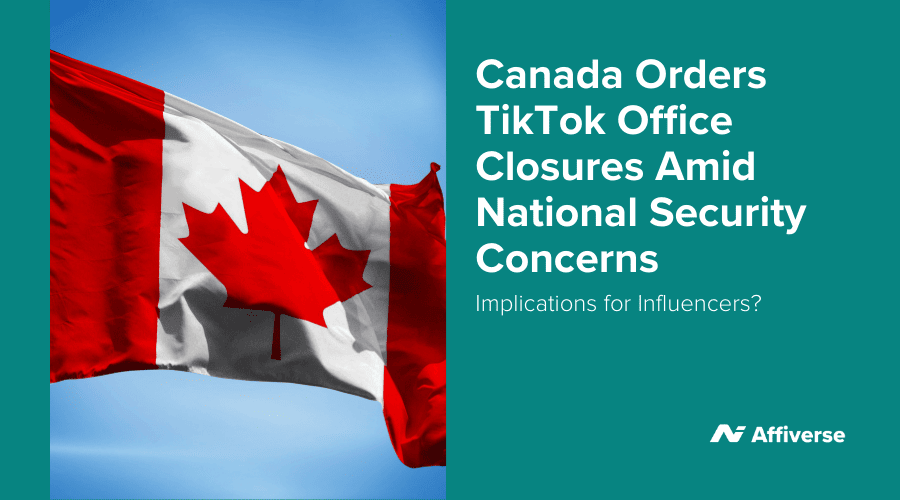In a decisive move, the Canadian government has mandated the closure of TikTok’s offices within the country, citing escalating national security concerns. This action reflects growing apprehension about the platform’s data handling practices and its ties to China.
Government’s Stance on TikTok
The decision to shut down TikTok’s Canadian operations stems from fears that user data could be accessed by the Chinese government, given TikTok’s ownership by Beijing-based ByteDance. Canadian authorities have expressed unease over potential data breaches and the influence of foreign entities on domestic digital platforms.
In February 2023, TikTok was banned from all government devices, citing security concerns. Later that year, the government called for a broader national security review under the 1985 Investment Canada Act, which empowers the government to scrutinize foreign investments.
A statement published to the TikTok Newsroom, reads:
“Our Response to the Government of Canada’s order to Shut-Down TikTok Canada – Shutting down TikTok’s Canadian offices and destroying hundreds of well-paying local jobs is not in anyone’s best interest, and today’s shutdown order will do just that. We will challenge this order in court. The TikTok platform will remain available for creators to find an audience, explore new interests and for businesses to thrive.”
Impact on Influencers
Although TikTok remains operational in Canada, the office closures hint at potential long-term implications for the platform’s presence in the country. It’s unclear how these developments will affect TikTok’s operations in terms of advertising partnerships, local content moderation, and community engagement, but the closure raises questions for creators and brands heavily invested in the platform.
For influencers, understanding the reasons behind this move and its implications is crucial for navigating the future. The closure of TikTok’s local offices presents immediate challenges for Canadian influencers to navigate:
- Reduced Support: With the absence of a local TikTok presence, influencers may find it more difficult to access platform support and resources tailored to the Canadian market.
- Uncertain Future: The government’s stringent measures could lead to further restrictions or even a complete ban of the app in Canada, jeopardizing influencers’ primary content distribution channel.
Strategies for Diversification
To mitigate risks associated with over-reliance on a single platform, influencers should consider the following strategies:
- Expand Platform Presence: Engage with audiences on alternative platforms such as Instagram Reels, YouTube Shorts, and emerging social media networks to maintain visibility.
- Develop Owned Channels: Invest in personal websites, blogs, and email newsletters to establish direct communication lines with followers, independent of third-party platforms.
- Collaborate Across Mediums: Partner with brands and fellow creators on multi-platform campaigns to diversify content reach and revenue streams.
- Explore Long-Form Content: Create longer videos or podcasts to deepen audience engagement and open new monetization avenues.
- Utilize Affiliate Marketing: Participate in affiliate programs to generate income through product promotions across various channels.
Looking Ahead
The closure of TikTok’s Canadian offices is a significant development, but it doesn’t spell doom for the platform or its creators. TikTok remains a powerhouse for content creation and marketing, and Canadian influencers can still thrive by staying agile and proactive.
The Canadian government’s action against TikTok underscores the volatile nature of digital platforms and the importance of adaptability for content creators. By proactively diversifying their online presence and content strategies, influencers can safeguard their careers against unforeseen platform-specific disruptions.




















